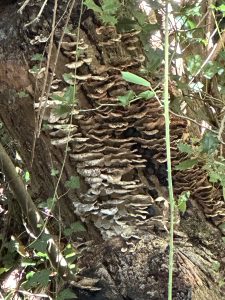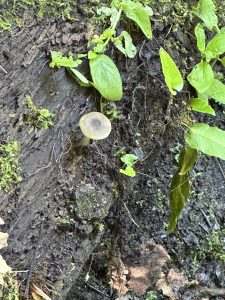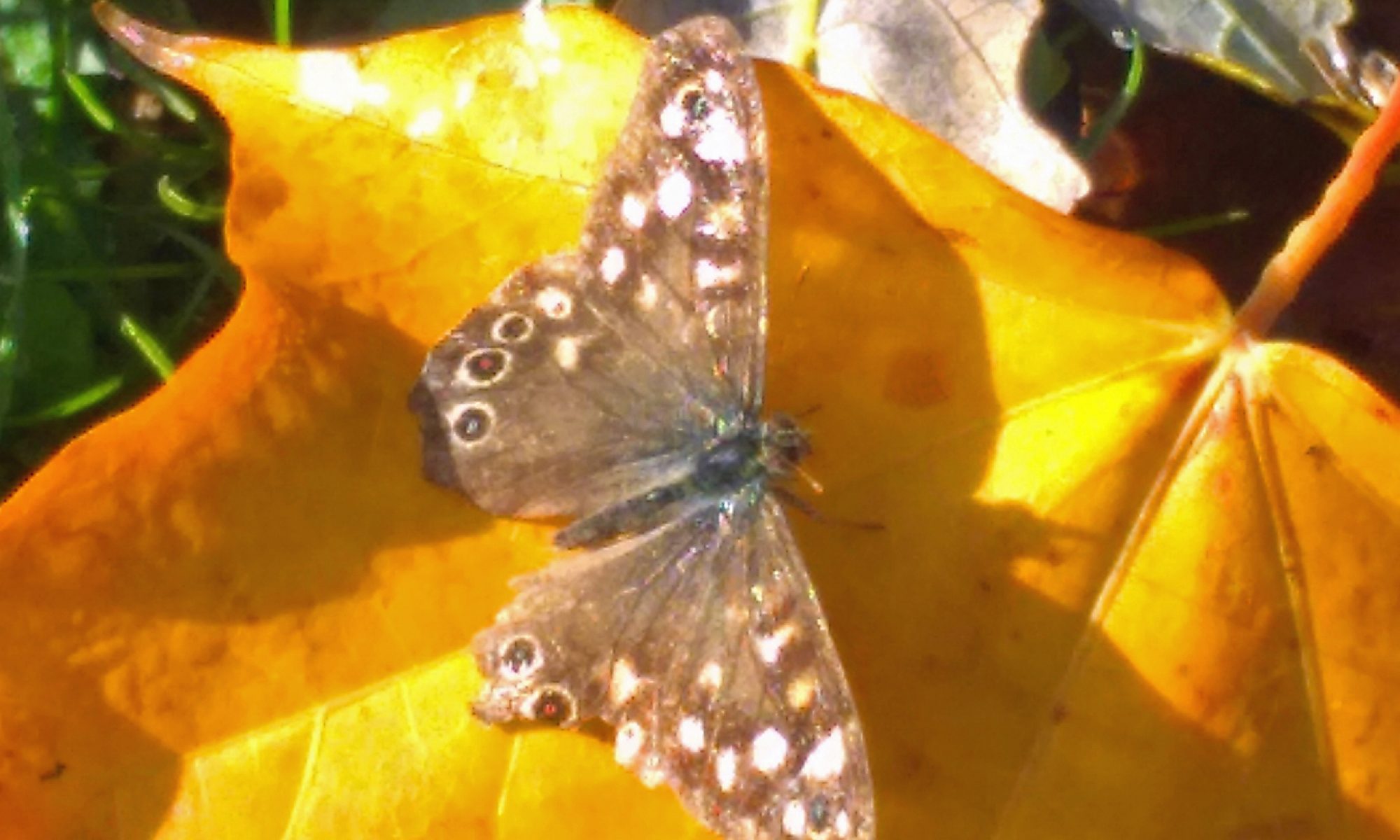
It was a stormy August night in Nowhere Wood. The wind was tearing through the leaves and branches and was strong enough to pull the whole tree down.
And so, a tree that had been growing in the Wood for fifty years or more was felled to the floor of the wood.

In the tangled wreckage of leaves, twigs and branches, we can see the tell-tale signs of Ash-dieback disease. This probably weakened the tree, so the wind could blow it over more easily.
Most of the ash trees in this region have the disease, which is caused by a fungus that produces sores that blow away in the air, spreading easily through the wood. One day they will be cut down.

Although this tree has died, its adventure through time continues. It is becoming useful because it is a large store of nutrients that other organisms in the wood will use to survive and grow.
Over time, insects and fungi will break down the tree wood releasing nutrients that to the organisms in the wood.
Left undisturbed, nothing will go to waste.
New trees will grow up to replace those that have fallen, using the nutrients that are in the soil. Fallen trees are an opportunity for the wood to re-grow itself.

There are lots of fallen trees in Nowhere Wood. The autumn is a good time to see fungi feeding on the wood, because this is the season when they produce their fruiting bodies that make spores. Mushrooms are examples of these fruiting bodies.
- It is sad when we lose trees that we have known for years. Yet there is hope for the future. How does the wood recover from the loss of trees?


